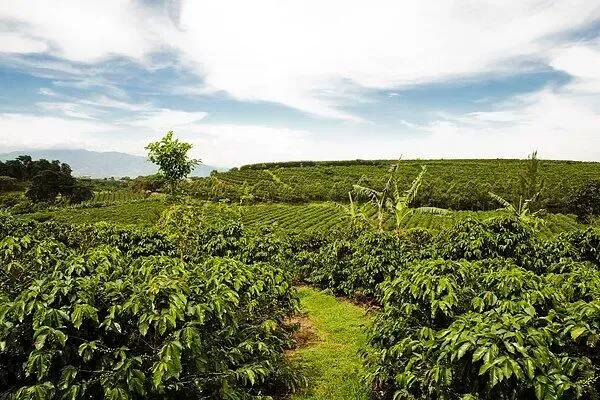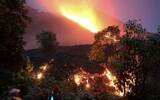Costa Rican Coffee Bean | introduction of Mozart Coffee Bean in Carnett Manor in Tara Pearl area
In the coffee growing belt, the American region happens to be in the coffee growing belt, and there are many famous coffee growing countries in the Americas, such as Panama, Honduras, Costa Rica, Guatemala and so on. Costa Rica is famous as the first country in Central America to grow coffee and bananas for commercial value, and is currently the 14th largest coffee producer in the world.
Costa Rica
Costa Rica is located in the Central American Strait, bordering Nicaragua and Panama, the Caribbean Sea to the east and the Pacific Ocean to the west. The coast of Costa Rica is a plain, cut off in the middle by rugged mountains.

Costa Rica has more than 200 volcanoes and many forests, and the national forest coverage is 52.38%. Costa Rica has a tropical and subtropical climate, with two seasons of drought and rain throughout the year. Coffee is mainly grown in volcanic areas and fertile soil with low acidity, and more than 80 per cent of coffee producing areas are located between 800 and 1700 meters above sea level, with temperatures ranging from 17 ℃ to 28 ℃ and annual rainfall of 2000 to 3000 mm. It is an ideal place to produce coffee. And the Costa Rican government attaches great importance to the cultivation and quality of coffee, establishing the Costa Rican Coffee Institute ICAFE in 1933 to study coffee varieties and cultivation and to promote Costa Rican coffee worldwide, and since 1989, in order to ensure coffee quality, the cultivation of robusta coffee beans has been prohibited by law.
Tara bead
There are eight coffee producing areas in Costa Rica: the western valley (Valley Central Occidental), the central valley (Valley Central), the Tarazu (Tarrazu), the Sanshui River (Tres Rios), the European Rossi (Orosi), Brenka (Brunca) and Duli Alba (Turrialba), almost all of which are distributed in the central mountains.

Among them, Tarazhu producing area is the largest and most well-known producing area in the country, and it is also the first producing area to be certified of origin. The production is affected by warm and humid air currents from the Pacific Ocean, with annual rainfall of up to 2400 mm, and coffee grows in fertile volcanic soil at an altitude of 1500-2100 meters. As the region is relatively famous, Costa Rica registered the coffee origin name "Caf é de Tarraz ú" with the European Union and the World intellectual property Organization (WIPO) in 2019 to protect the coffee produced in the region. Qianjie Coffee has a washed Costa Rican Tarazu coffee bean, as an entry selection, with slightly sour, sweet orange, nutty and honey flavor.
Carnett Manor
Carnett Manor is located at the highest altitude in the Tarazu producing area, which is also the densest fruit-growing area in Costa Rica. On the other hand, Carnett Manor mainly grows passion fruit, has a specific area to grow coffee, takes special care, and only picks ripe red cherry fruit. The estate is owned by three brothers, the Robles brothers Leo, Elian and Melvin, and also has a small processing plant.
H1 coffee variety
H1, from the Nicaraguan Sebaco laboratory, its full name is Centroamericano, which is bred by the hybrid of the first generation of F1 hybrid series Tmur5296 (Satchmo) and Sudan Rume (Lumei Sudan). During cultivation in Central America, it was found that the yield of this variety was extremely high, with an increase of 22% to 47% compared with ordinary varieties, and that it would have excellent quality when planted at high elevations, but required careful care. However, because of the complexity of seed hybridization, the variety can only be propagated by cloning.
Front Street Coffee Costa Rican musician Mozart Coffee Bean production area: Tara Zhu production area Manor / processing Plant: Carnett Manor elevation: 1800 meters above sea level: H1 treatment method: raisin honey treatment flavor: fermented raisin carambola dried sucrose
The Mozart beans of the front street coffee at Carnett Manor in Costa Rica are treated with dried grape honey and moderately roasted. Qianjie uses the proportion of V60JEL / 15 and the water temperature of 92 ℃ to boil, there will be complex aromas of flowers and fermented sauce, sweet taste like raisins and dried fruits, acidity like carambola and berries, silky taste and sweet sucrose.
Important Notice :
前街咖啡 FrontStreet Coffee has moved to new addredd:
FrontStreet Coffee Address: 315,Donghua East Road,GuangZhou
Tel:020 38364473
- Prev

The quietest store of manner! Enterprises that are friendly to the disabled are great.
▲ Click to follow | Daily boutique Coffee Culture Magazine Coffee Workshop for some consumers, a good cup of coffee includes not only caffeine, but also communication with baristas. If you meet people who talk eloquently, a cup of coffee may change stories from baristas, but if you encounter silent baristas,
- Next

The coffee industry in Guatemala has been affected by several forest fires and power shortages caused by El Ni ñ o.
Recently, according to the official online account of the Guatemala National disaster reduction Coordination Agency, the dry season has entered since the beginning of November 2023, and El Ni ñ o weather has exacerbated the dry season, resulting in a number of fires in Guatemala. According to data, there are a total of 855 fires in Guatemala, including forest fires.
Related
- What grade does Jamaica Blue Mountain No. 1 coffee belong to and how to drink it better? What is the highest grade of Blue Mountain coffee for coffee aristocrats?
- What are the flavor characteristics of the world-famous coffee Blue Mountain No. 1 Golden Mantelin? What are the characteristics of deep-roasted bitter coffee?
- Can I make coffee a second time in an Italian hand-brewed mocha pot? Why can't coffee be brewed several times like tea leaves?
- Hand-brewed coffee flows with a knife and a tornado. How to brew it? What is the proportion of grinding water and water temperature divided into?
- What is the difference between Indonesian Sumatra Mantinin coffee and gold Mantinin? How to distinguish between real and fake golden Mantelin coffee?
- What does bypass mean in coffee? Why can hand-brewed coffee and water make it better?
- Unexpected! Ruixing Telunsu lattes use a smoothie machine to foam milk?!
- % Arabia's first store in Henan opens into the village?! Netizen: Thought it was P's
- Does an authentic standard mocha coffee recipe use chocolate sauce or powder? Mocha Latte/Dirty Coffee/Salty Mocha Coffee Recipe Share!
- What is the difference between Vietnam egg coffee and Norway egg coffee? Hand-brewed single product coffee filter paper filter cloth filter flat solution!

